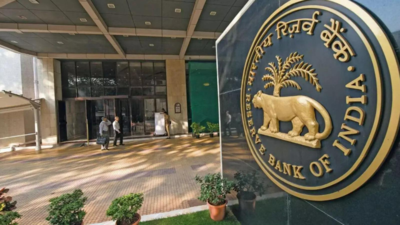
Addressing the annual conclave of the Association of Portfolio Managers in India (APMI), the Sebi chief also urged the industry body to curb misleading claims being made by a few registered portfolio managers.
“The PMS (Portfolio Manager Services) industry needs to modernise onboarding, reporting, and client engagement through digital solutions to stay competitive and trusted,” the Sebi chief said.
Stating that the PMS industry is at an inflexion point, he said, “You have a powerful position in place, a flexible regulatory framework, active industry engagement through the Association, and a rising pool of informed investors.”.
According to the market regulator, the number of registered portfolio managers rose from 361 at the end of FY21 to 479 as of June 30, 2025.
During the same period, the total client base grew at a compounded annual growth rate of 12 per cent with discretionary PMS clients growing at 13 per cent annually and now making up about 96 per cent of all clients, Pandey said. Discretionary AUM (assets under management), which is non-ETFO PF, grew 23 per cent annually, indicating increased client preference to delegate active management of their portfolios, he said, adding this AUM also makes up over 40 per cent of the organically sourced AUM, a sign of client trust in the industry.He said that while non-discretionary and advisory client counts have declined, their AUMs have risen.
“This has indicated that substantial PMS client relationships still exist in these categories. But this growth comes with a mandate to maintain trust and professional conduct,” Pandey said.
Noting that clients are entrusting Portfolio Managers with their capital and their future, the Sebi chief warned that “any fall in governance standards will erode that trust.”
SEBI has worked with the Association to bring in a slew of reforms such as streamlining the process to digitally onboard clients, simplification of disclosure documents, specifying clear guidelines on infrastructure adequacy, bringing PMS distributors under the oversight of APMI, selection of a secondary benchmark made optional, and issuance of consolidated guidance by your master circulars, aimed at ease of business to support the evolution of the PMS industry, he said.
Besides this, he said, an operational manual for registration and post-registration activities is also available, reducing SEBI’s average processing time from 74 days in FY23-24 to 49 days in FY24-25.
“These are not just administrative conveniences; they are enablers for you to focus on carrying out your core business of meeting client deliverables. While PMS caters to sophisticated investors, we have worked with APMI on reforms for protecting investor interest,” Pandey stated.
Some of these reforms include norms for performance reporting and benchmarking, investment limits on related party transactions with prior client consent, disclosure of investor grievance data on PMS websites, among others, he said.
Emphasising that growing demand for customised wealth management outside of the traditional mutual fund space reflects investor sophistication, he said portfolio managers’ edge is its flexibility in delivering tailor-made strategies.
“You must ensure that clients understand the risk-return trade-offs, the bespoke nature of the mandate, and the advantage of directly owning underlying securities, benefits that pooled products may not match. Educating each client on their own unique risk appetite is a first step in building a truly diversified portfolio,” Pandey said.
“By combining the benefits of mutual funds with the capabilities of PMS, investors in India can build portfolios that are both resilient and differentiated,” he said.
The Association and the industry must curb misleading claims being made by a few registered portfolio managers, Pandey said, adding that “such exaggerated performance claims undermine trust and could stall growth of this industry.
He also urged the industry to ensure that clients understand the risk-return trade-offs, the bespoke nature of the mandate, and the advantage of directly owning underlying securities, which benefits that pooled products may not match. PTI





